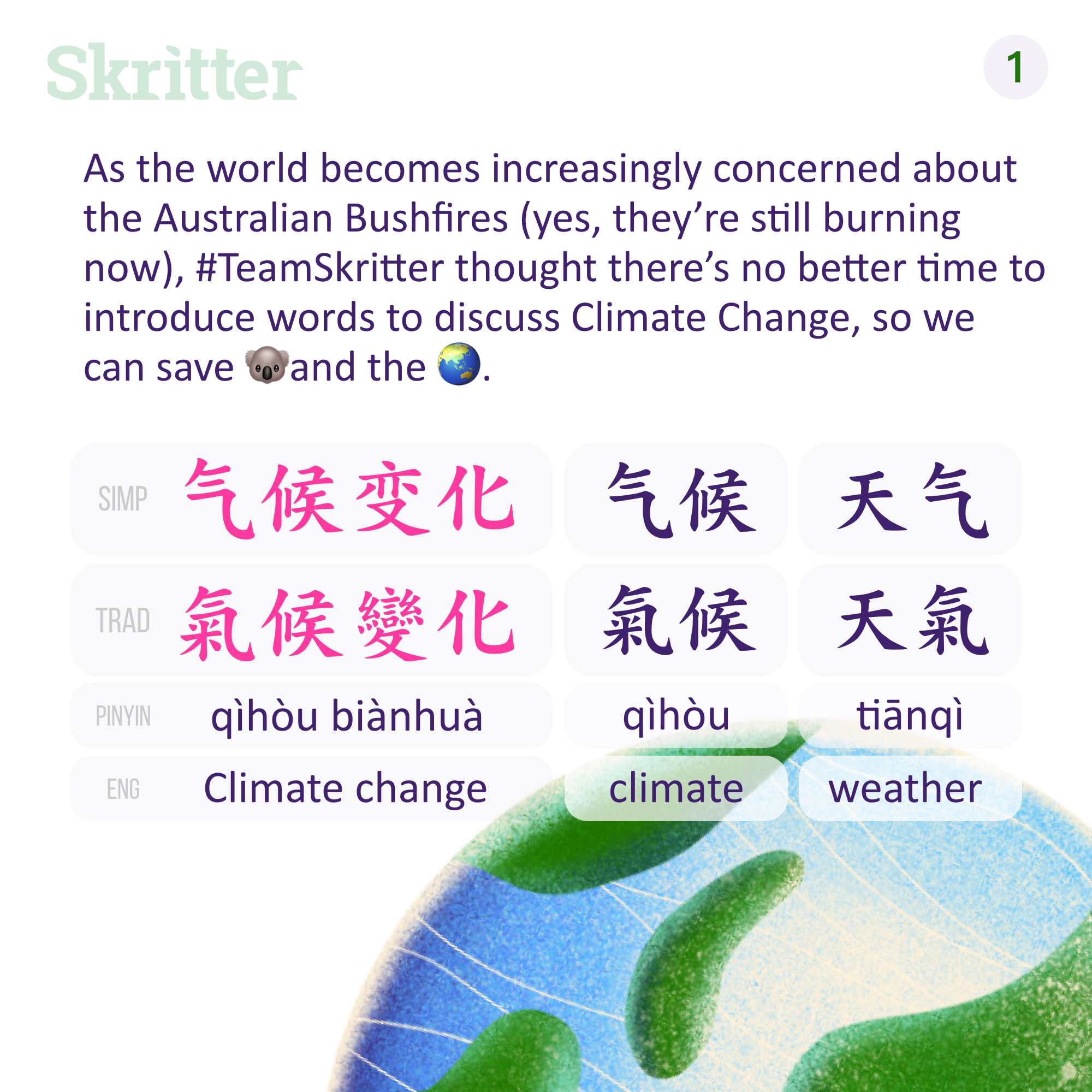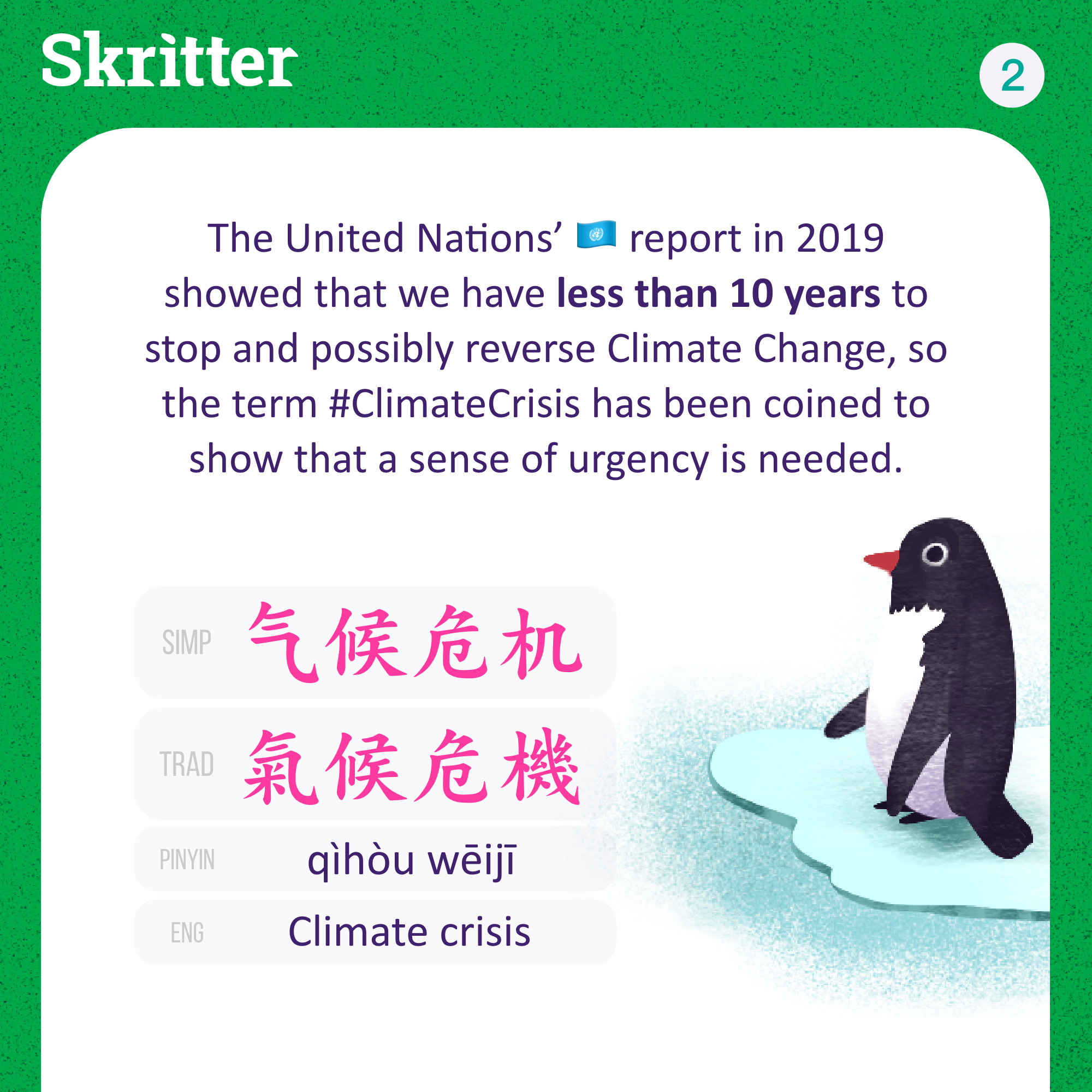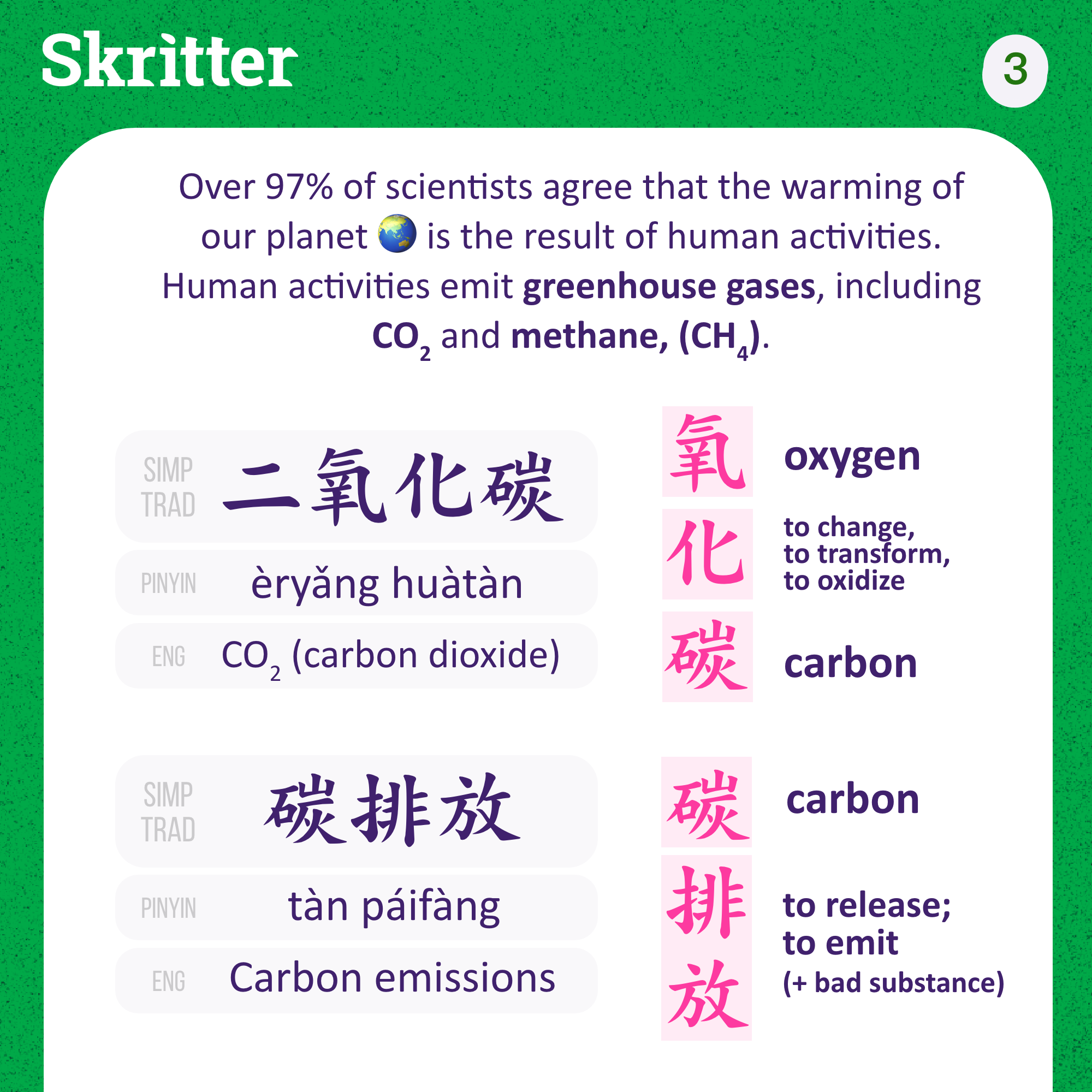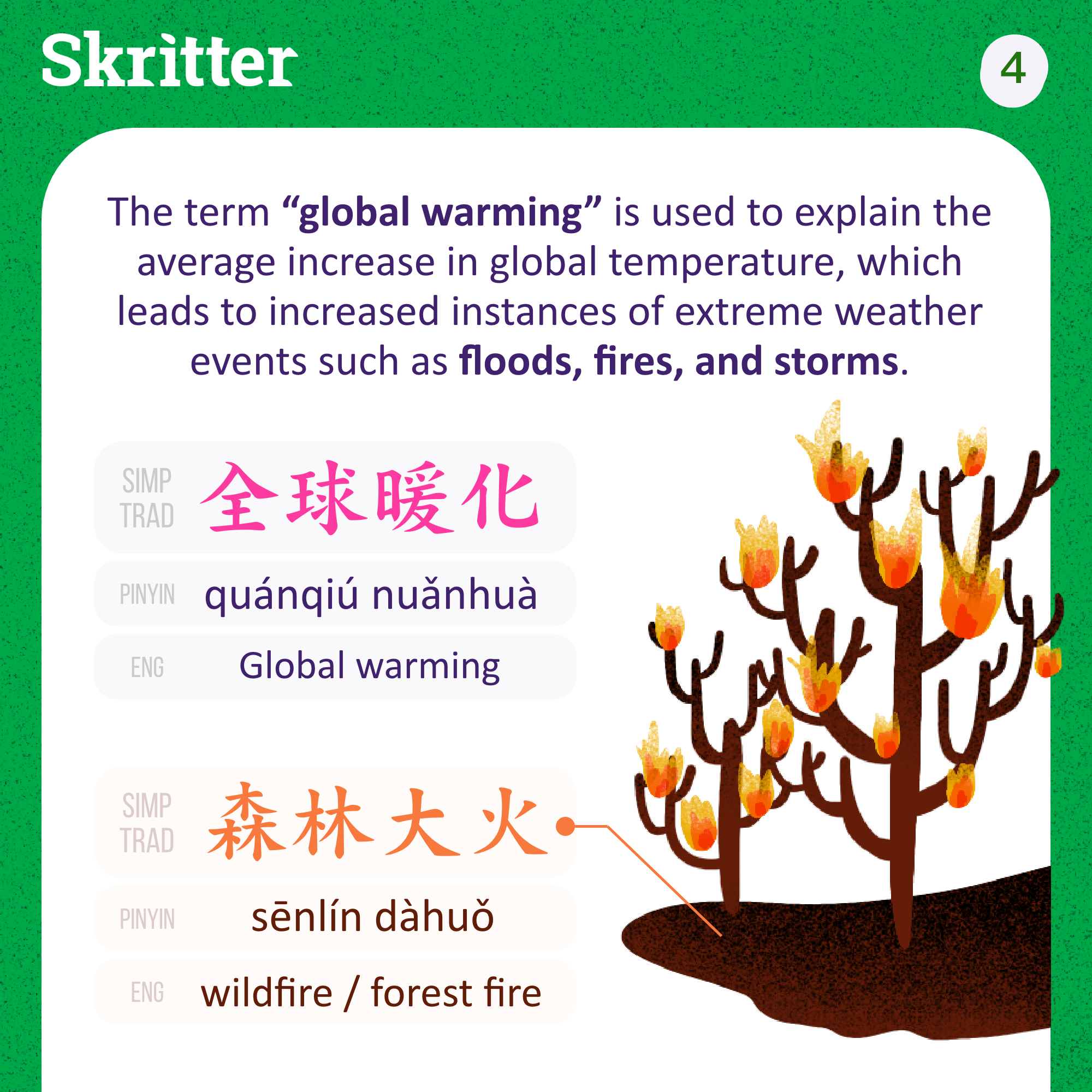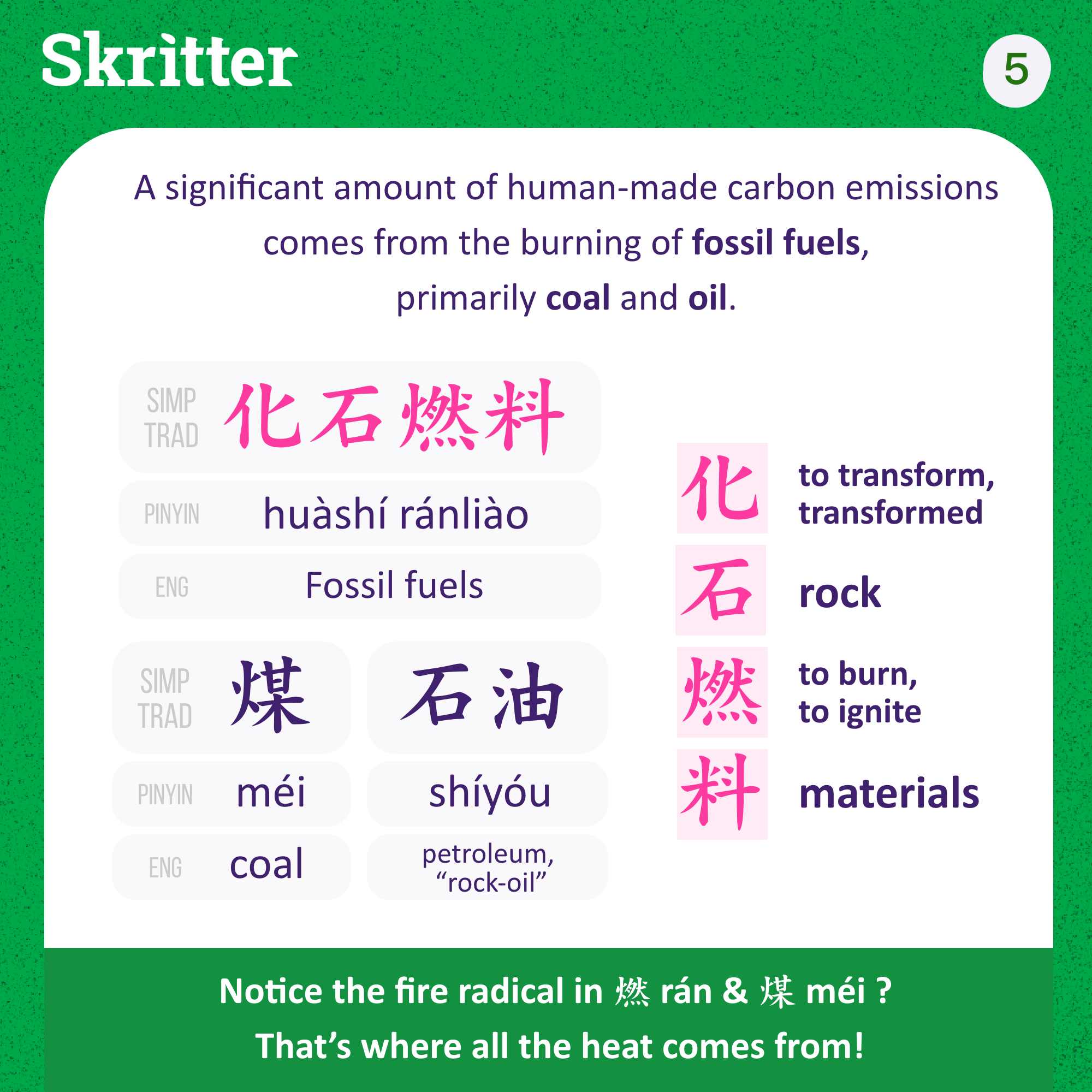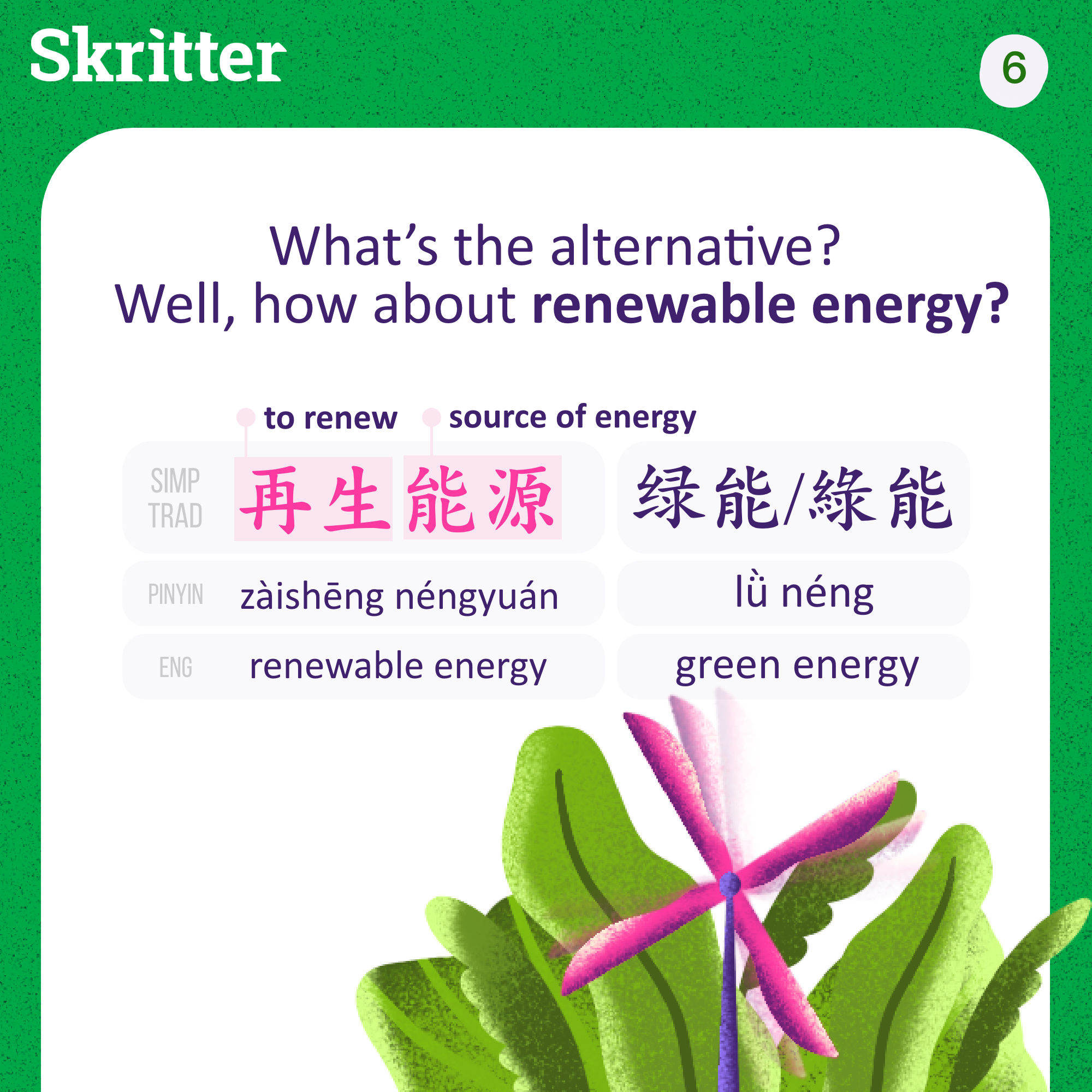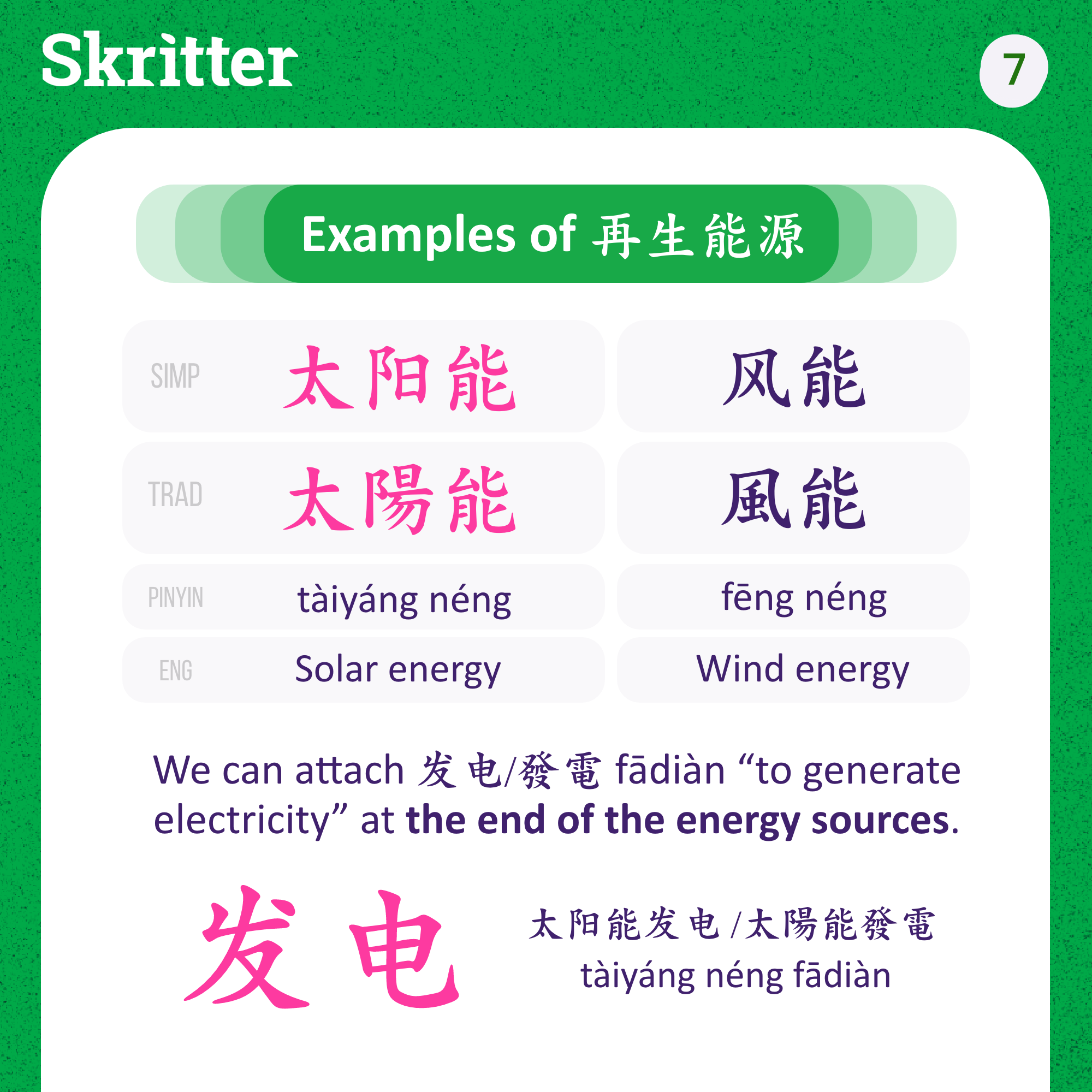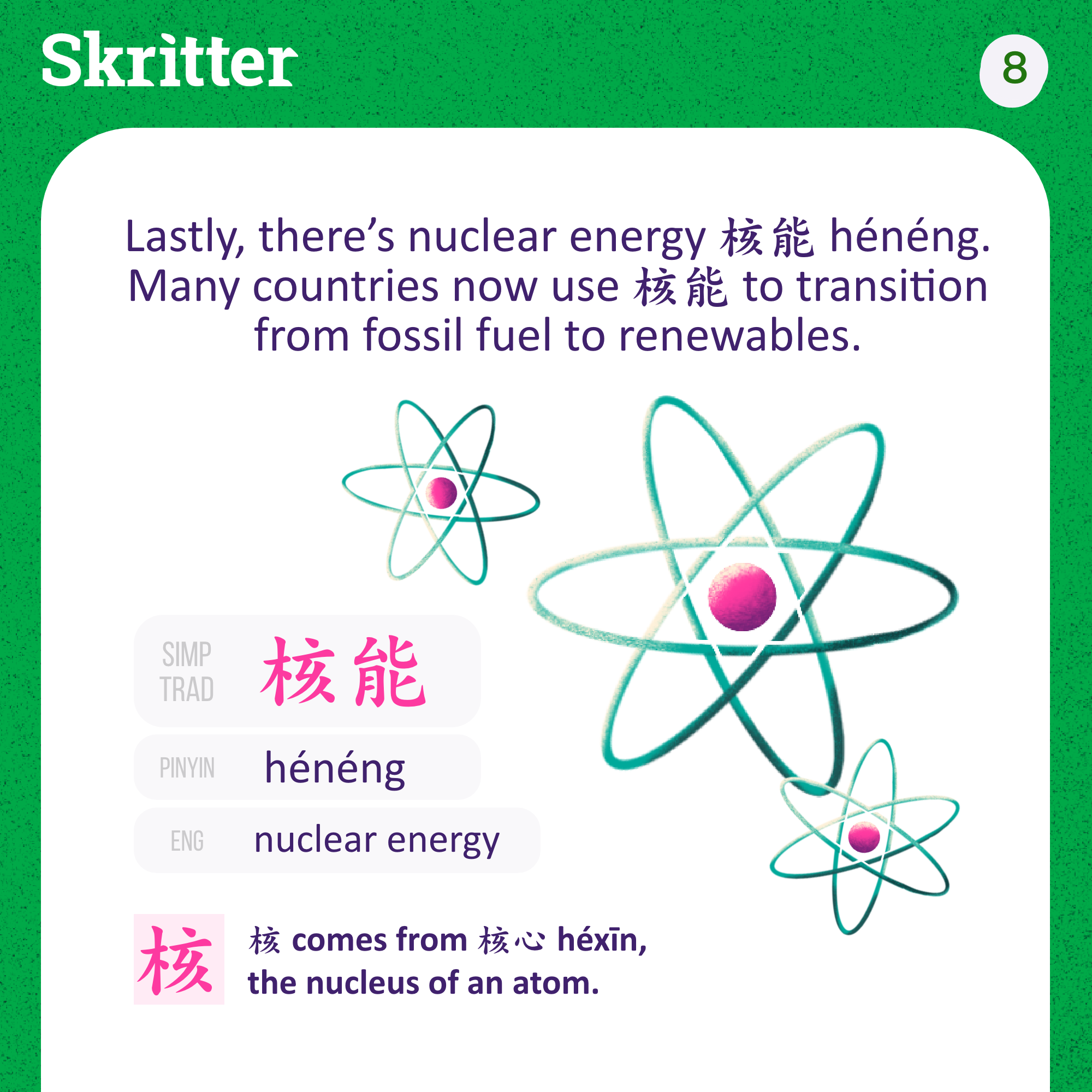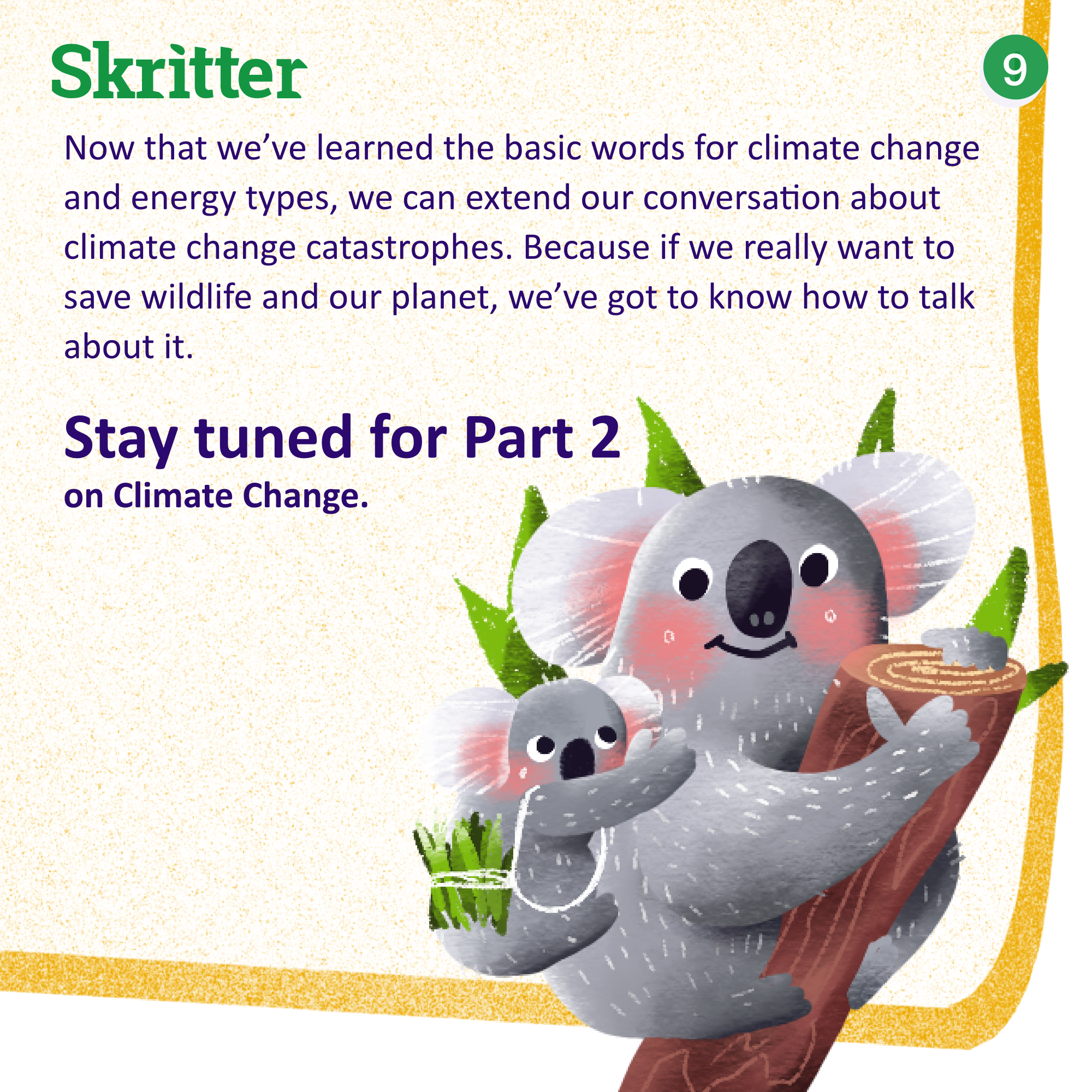Learn lots of useful and important terms about climate change and the environment in today’s mini-lesson. If you can talk about it, then you can spread awareness and do your bit. If you didn’t see last week’s post about recycling, click the hashtag #SkritterChineseTips. 💚🌍
Card 1:
As the world becomes increasingly concerned about the Australian Bushfires (yes, they’re still burning now), #TeamSkritter thought there’s no better time to introduce words to discuss Climate Change, so we can save 🐨and the 🌏.
- climate change: 气候变化 qìhòu biànhuà

Card 2
The United Nations’ 🇺🇳 report in 2019 showed that we have less than 10 years to stop and possibly reverse Climate Change, so the term #ClimateCrisis has been coined to show that a sense of urgency is needed.
- climate crisis: 气候危机 qìhòu wēijī

Card 3
Over 97% of scientists agree that the warming of
our planet 🌏 is the result of human activities. Human activities emit greenhouse gases, including CO2 and methane, (CH4).
- CO2 (carbon dioxide): 二氧化碳 èryǎng huàtàn
- carbon emissions: 碳排放 tàn páifàng
Card 4
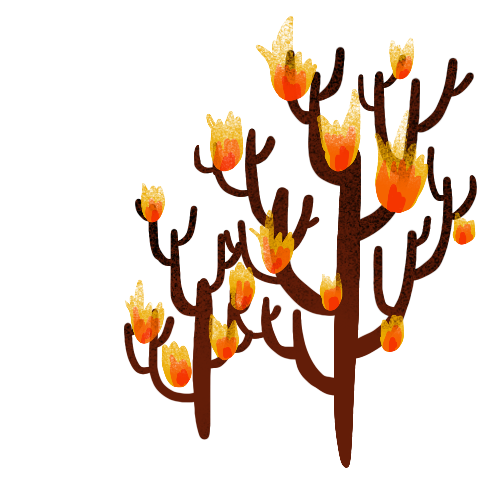
The term “global warming” is used to explain the average increase in global temperature, which leads to increased instances of extreme weather events such as floods, fires, and storms.
- global warming 全球暖化 quánqiú nuǎnhuà
- wildfire / forest fire 森林大火 sēnlín dàhuǒ
Card 5
A significant amount of human-made carbon emissions comes from the burning of fossil fuels, primarily coal and oil.
- fossil fuels: 化石燃料 huàshí ránliào
- coal: 煤 méi coal
- petroleum: 石油 shíyóu, Literally “rock-oil”
Card 6

What’s the alternative? Well, how about renewable energy?
- renewable energy: 再生能源 zàishēng néngyuán
- green energy: 绿能 lǜ néng
- solar energy 太阳能 tàiyáng néng
- wind energy 风能 fēng néng
Card 8
Lastly, there’s nuclear energy 核能 hénéng. Many countries now use 核能 to transition from fossil fuel to renewables.
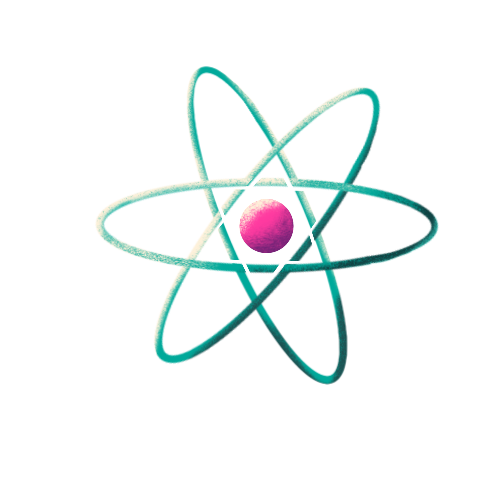
- nuclear energy 核能 hénéng (核 comes from 核心 héxīn, the nucleus of an atom).



